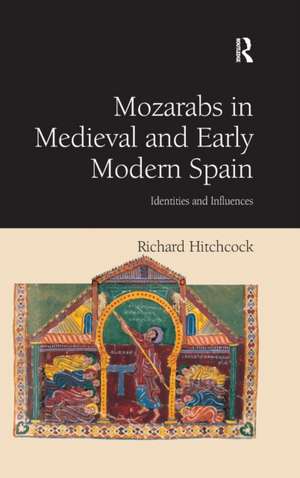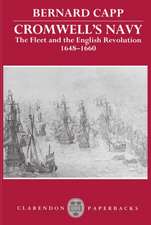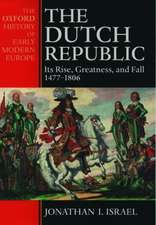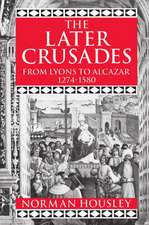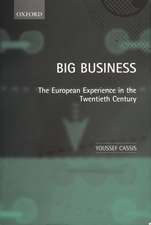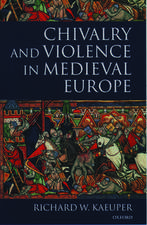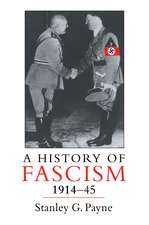Mozarabs in Medieval and Early Modern Spain: Identities and Influences
Autor Richard Hitchcocken Limba Engleză Hardback – 28 apr 2008
Preț: 1055.51 lei
Preț vechi: 1287.22 lei
-18% Nou
Puncte Express: 1583
Preț estimativ în valută:
201.97€ • 210.87$ • 167.16£
201.97€ • 210.87$ • 167.16£
Carte tipărită la comandă
Livrare economică 04-18 aprilie
Preluare comenzi: 021 569.72.76
Specificații
ISBN-13: 9780754663140
ISBN-10: 0754663140
Pagini: 172
Ilustrații: maps
Dimensiuni: 156 x 234 x 11 mm
Greutate: 0.48 kg
Ediția:New ed
Editura: Taylor & Francis
Colecția Routledge
Locul publicării:Oxford, United Kingdom
ISBN-10: 0754663140
Pagini: 172
Ilustrații: maps
Dimensiuni: 156 x 234 x 11 mm
Greutate: 0.48 kg
Ediția:New ed
Editura: Taylor & Francis
Colecția Routledge
Locul publicării:Oxford, United Kingdom
Recenzii
’This is a thought-provoking study...Recommended.’ Choice ’Overall this is a highly engaging and thought-provoking book.’ Medium Aevum ’With the publication of this book, Hitchcock has produced an important work that allows scholars to question deeply held traditions surrounding the Mozarabs in medieval and early modern Spain.’ The Medieval Review 'Hitchcock's book is required reading for anybody interested in the history of Spain or the co-existence of religious communities tout court.' Bulletin of Hispanic Studies
Notă biografică
Richard Hitchcock is Professor Emeritus of Hispano-Arabic Studies at the University of Exeter, UK.
Cuprins
Introduction; Chapter 1 Meaning and Origins; Chapter 2 Muslims and Christians in al-Andalus in the Early Eighth Century; Chapter 3 The Case of Córdoba in the Ninth Century; Chapter 4 Christians in Córdoba; Chapter 5 Mozarabism in León I; Chapter 6 Mozarabism in León II; Chapter 7 Mozarabs in Toledo; Chapter 8 Mozarabs in Aragón; Chapter 9 Mozarabs after 1492; Chapter 101 Postscript;
Descriere
This volume explores the co-existence of Christianity and Islam on the Iberian Peninsula during the Middle Ages” the official religions of Muslim al-Andalus on the one hand, and the Christian kingdoms in the north of the peninsula on the other. It examines the meaning of the word 'Mozarab' and the history and nature of these people. First the author explains what being a non-Muslim meant in al-Andalus and then considers Mozarabism in León and Toledo. Finally, he explores the issues that arose when Mozarabs were relocated in twelfth-century Aragón, and then, in sixteenth-century Toledo, when they were striving to retain their identity.
